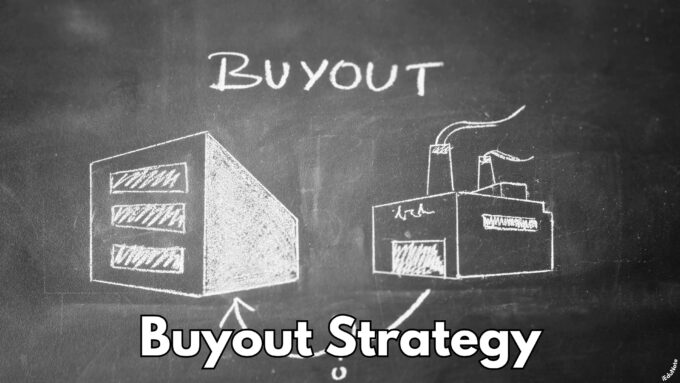If you own a company, buyouts are not going to be strangers to you. They are a fundamental part of business and can play a huge role in the success or failure of a company. But, as a business owner, you might be wondering how big your company needs to be for a buyout.
Well, that is what we are going to go over in this article. On top of answering this tricky question, we are going to go over how to sell a business fast and more.
So, without further ado, let’s dive right in and get started!
What is a Buyout?
Before we can go any further, you need to understand what exactly a buyout is. In essence, it is the acquisition of controlling interest in a company. This is a term that is used synonymously with the term acquisition.
If the management firm has purchased a stake in a company, this is known as a management buyout. Alternatively, if a business is in a lot of debt and this is used to fund a buyer this is called a leveraged buyout, for obvious reasons. This most often happens when a company has decided to go private.
What Types of Buyouts Are There?

There are three types of buyouts. The first is known as a management buyout, which we mentioned before, this essentially means that a company is mostly or completely taken over by another company. This kind of buyout offers a company continuity of operations, and it is the preferred form of takeover of employees, customers, and suppliers.
The next type of buyout is something known as management buy-in. This is basically the same thing as a management buyout. The main difference is that the company is bought out by a group of managers that are external to the company that is taking over.
The last type of buyout is known as a leveraged buyout. In short, a leveraged buyout is the acquisition of a company where the payment is mostly made up of third-party debt. Usually, the buyer will have a private equity firm in this kind of buyout.
What Motives are there for a Buyout?

What might motivate someone to go for a buyout? Having the right leverage isn’t the only factor that will go into a company being offered a buyout. In fact, most of the time there are motives behind an offer. Below are a few motives that might instigate a buyout:
- The Generation of Value – This one is pretty self-explanatory. The buyer sees potential in a company to make a significant amount of money.
- The Availability of Capital – Some people find that their capital will be put to better use if they put it to use in an investment. For example, a buyout.
- Lifestyle Choices – A lot of the time for smaller buyouts, a common motive is lifestyle choice. The acquisition of a smaller company might just fit the lifestyle of the buyer.
- Opportunity for Acquisition – The purchase of smaller buyouts are often seen as a great opportunity. Or if an owner is retiring and the existing team thinks that a buyout opportunity is just what the company needs to stay on top.
As you can see, there are many reasons that a buyout might be a good idea for a company. Additionally, the size of a company is inconsequential for a buyout. What matters is the potential for capital, value, and a fit to a lifestyle.
What Requirements Are there for a Buyout?

So, what makes a buyout worth it? Well, there are some criteria that are generally sought after to make a company buyout worth the time.
- Bad Management – While many think that a badly managed company is undervalued, this criteria is more in reference to a more general state of bad management. For example, the staff may not be motivated, and the company’s performance is sub-par, which is not a great deal of functional oversight for the target of the company.
- Synergistic – A company buyout may be a good idea if a buyer has found a synergistic quality of a firm that already exists. For example, a company that is being targeted may represent a horizontal or vertical integration that suits them.
- Undervalued – This essentially means that buying a company out will increase the value of a company. For example, if a company is selling a product, but the sales are not as good as they could be due to market practices. A situation like this might be a good sign that a company could be bought out.
As you can see here, the size of a company does not really come into the decision-making process. It is more about looking for companies that have potential investment opportunities. In other words, it is all about the possibility of making money.
Final Thoughts

We hope that you have enjoyed reading this article, and learning how big your company needs to be for a buyout. As you will have discovered, this is a complicated question and one that is rooted in the profit a business is making rather than how big it is.
When you are intent on selling your business, it is essential that you make sure that the whole process goes quickly and without a hitch. But if this is to happen, you will need to make sure that you are well-prepared in advance of the sale. By preparing, you have all the documentation and records you might need on hand. On top of that, it will also help decide what the value of your business is. This can help you to not price your business too high or too low.
Hopefully, you have learned a lot by reading this article. If so, you should undoubtedly check out some of our other articles. There are loads of other articles covering different topics within this field. You are sure to find something there that you will find interesting and maybe even enlightening.








